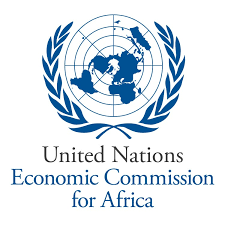The ECA estimates that a one-month full lockdown across Africa would cost the continent about 2.5 per cent of its annual GDP, equivalent to about $65.7 billion per month.
In a new report entitled, “COVID-19: Lockdown Exit Strategies for Africa,” the ECA proposed seven exit strategies that provide sustainable, albeit reduced, economic activity.
With the lockdowns came serious challenges for Africa’s economies, including a drop in demand for products and services; lack of operational cash flow; reduction of opportunities to meet new customers; businesses were closed
The seven lockdown exit strategies being proposed by the think-tank are identified from proposals and trials around the world. They are assessed with respect to the extent to which each strategy minimizes uncertainty over fatalities.
They are improving testing; lockdown until preventive or curative medicines are developed; contact tracing and mass testing; immunity permits; gradual segmented reopening; adaptive triggering; and mitigation.
Under adaptive triggering nations can ease lockdown once infections decline and re-impose if they begin to rise above intensive-care capacity.
Mitigation gradually allows the infection to spread across the population with some social distancing measures in place.
Firms surveyed by the ECA reported to be operating at only 43 per cent; 70 per cent of slum dwellers report that they are missing meals or eating less as a result of COVID-19.
Lockdowns, the report notes, forestall severe vulnerabilities, and that testing, contact tracing and easing restrictions may be possible for countries with sufficient public health systems and that have contained COVID-19 transmission, put in place preventive measures, engaged and educated communities, and minimized risks to vulnerable groups.
Gradual segmented reopening may be needed in countries where containment has failed with further measures to suppress the spread of the disease being required where the virus is still spreading, notes the report.
Active learning and data collection can help policymakers ascertain risks across the breadth of policy unknowns as they consider recommendations to ease lockdowns and move towards a “new normal”.
The report urges African nations to take advantage of being behind the curve. This may be an opportunity to learn from the experiences of other regions and their experiments in reopening.
























Leave a comment